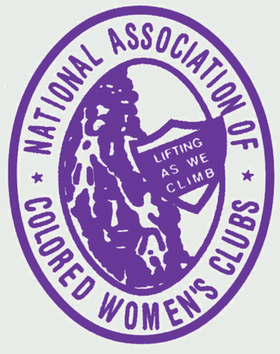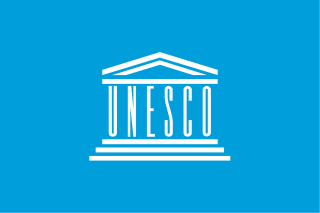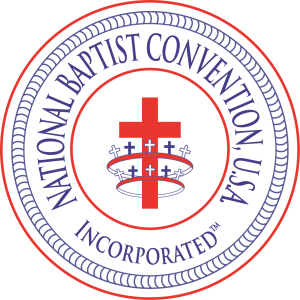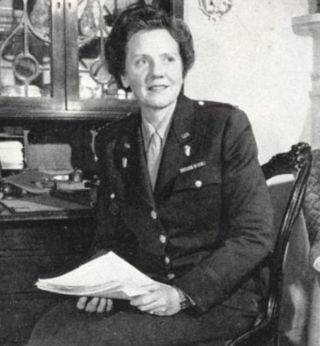Related Research Articles

Lions Clubs International, is an international service organization, currently headquartered in Oak Brook, IL, USA. As of January 2020, it had over 46,000 local clubs and more than 1.4 million members in more than 200 countries and geographic areas around the world.

Wilma Glodean Rudolph was an American sprinter who overcame childhood polio and went on to become a world-record-holding Olympic champion and international sports icon in track and field following her successes in the 1956 and 1960 Olympic Games. Rudolph competed in the 200-meter dash and won a bronze medal in the 4 × 100-meter relay at the 1956 Summer Olympics at Melbourne, Australia. She also won three gold medals, in the 100- and 200-meter individual events and the 4 x 100-meter relay at the 1960 Summer Olympics in Rome, Italy. Rudolph was acclaimed the fastest woman in the world in the 1960s and became the first American woman to win three gold medals in track and field during a single Olympic Games.
The Woman's Christian Temperance Union (WCTU) is an international temperance organization. It was among the first organizations of women devoted to social reform with a program that "linked the religious and the secular through concerted and far-reaching reform strategies based on applied Christianity." It plays an influential role in the temperance movement. Originating among women in the United States Prohibition movement, the organization supported the 18th Amendment and was also influential in social reform issues that came to prominence in the progressive era.

The Southern Baptist Convention (SBC), alternatively the Great Commission Baptists (GCB), is a Christian denomination based in the United States. It is the world's largest Baptist denomination, and the largest Protestant and second-largest Christian denomination in the United States. In 1845 the Southern Baptists separated from the Triennial Convention in order to support slavery, which the southern churches regarded as "an institution of heaven". During the 19th and most of the 20th century, it played a central role in Southern racial attitudes, supporting racial segregation and the Lost Cause of the Confederacy while opposing interracial marriage. In 1995, the organization apologized for its history. Since the 1940s, it has spread across the United States, having member churches across the country and 41 affiliated state conventions.

Rotary International is one of the largest service organizations in the world. The mission of Rotary, as stated on its website, is to "provide service to others, promote integrity, and advance world understanding, goodwill, and peace through [the] fellowship of business, professional, and community leaders". It is a non-political and non-religious organization. Membership is by application or invitation and based on various social factors. There are over 46,000 member clubs worldwide, with a membership of 1.4 million individuals, known as Rotary members.
Kiwanis International is an international service club founded in 1915 in Detroit, Michigan. It is headquartered in Indianapolis, Indiana, United States, and is found in more than 80 nations and geographic areas. In 1987, the organization began to accept women as members. Kiwanis and its affiliated clubs have more than 600,000 members. Kiwanis clubs raise over $100 million each year and report over 18.5 million volunteer hours to strengthen communities and serve children.

Optimist International is an international service club organization with almost 3,000 clubs and over 80,000 members in more than 20 countries. The international headquarters is located in St. Louis, Missouri, United States. Optimist International is also the sponsor of Junior Optimist International, designed for elementary school through high school aged youth.

Alpha Phi Omega (ΑΦΩ), commonly known as APO, but also A-Phi-O and A-Phi-Q, is a coeducational service fraternity. It is the largest collegiate fraternity in the United States, with chapters at over 350 campuses, an active membership of over 25,000 students, and over 500,000 alumni members. There are also 250 chapters in the Philippines, one in Australia and one in Canada. The 500,000th member was initiated in the Rho Pi chapter of Alpha Phi Omega at the University of California, San Diego.

Sigma Nu (ΣΝ) is an undergraduate college fraternity founded at the Virginia Military Institute in 1869. Since its founding, Sigma Nu has chartered more than 279 chapters across the United States and Canada and has initiated more than 235,000 members. It is part of the Lexington Triad, a trio of national fraternities that were founded at colleges in Lexington, Virginia.

Alpha Gamma Delta (ΑΓΔ), also known as Alpha Gam, is an international women's fraternity and social organization. It was founded on May 30, 1904, by eleven female students at Syracuse University in Syracuse, New York, and thus it is the youngest member of the Syracuse Triad of North American social sororities that also includes Gamma Phi Beta (1874) and Alpha Phi (1872). Since its founding, Alpha Gamma Delta has, as of December 2021, initiated over 201,000 members and installed 199 collegiate chapters and more than 250 alumnae groups.

Pi Beta Phi (ΠΒΦ), often known simply as Pi Phi, is an international women's fraternity founded at Monmouth College, in Monmouth, Illinois on April 28, 1867, as I. C. Sorosis, the first national secret college society of women to be modeled after the men's Greek-letter fraternity.

Key Club International, also called Key Club, is an international service organization for high school students. As a student-led organization, Key Club's goal is to encourage leadership through serving others. Key Club International is the high school branch of the Kiwanis International family, classified as a Service Leadership Program and more specifically as a Kiwanis Youth Program. Many Key Clubs are sponsored by a local Kiwanis club.

The National Association of Colored Women's Clubs (NACWC) is an American organization that was formed in July 1896 at the First Annual Convention of the National Federation of Afro-American Women in Washington, D.C., United States, by a merger of the National Federation of Afro-American Women, the Woman's Era Club of Boston, and the Colored Women's League of Washington, DC, at the call of Josephine St. Pierre Ruffin. From 1896 to 1904 it was known as the National Association of Colored Women (NACW). It adopted the motto "Lifting as we climb", to demonstrate to "an ignorant and suspicious world that our aims and interests are identical with those of all good aspiring women." When incorporated in 1904, NACW became known as the National Association of Colored Women's Clubs (NACWC).

Gamma Phi Beta is an international college sorority. It was founded in Syracuse University in 1874 and was the first of the Greek organizations to call itself a sorority. The term "sorority" was coined for Gamma Phi Beta by Dr. Frank Smalley, a professor at Syracuse University.

Circle K International (CKI) is an international collegiate service organization that is a service leadership program of Kiwanis International. It promotes service, leadership, and fellowship. It has over 13,000 members.

The United Nations Educational, Scientific and Cultural Organization (UNESCO) is a specialized agency of the United Nations (UN) with the aim of promoting world peace and security through international cooperation in education, arts, sciences and culture. It has 194 member states and 12 associate members, as well as partners in the non-governmental, intergovernmental and private sector. Headquartered in Paris, France, UNESCO has 53 regional field offices and 199 national commissions.

The National Baptist Convention, USA, Inc., more commonly known as the National Baptist Convention, is a Baptist Christian denomination headquartered at the Baptist World Center in Nashville, Tennessee and affiliated with the Baptist World Alliance. It is also the largest predominantly and traditionally African American church in the United States and the second largest Baptist denomination in the world.

Quota International, Inc. was an international service organization that, until it dissolved in 2020, provided basic needs to women, children, the deaf, and hard of hearing in communities around the world. Quota International's world service projects were aligned with the United Nations' Millennium Development Goals. Specifically, Quota clubs worked towards UN MDG Goals 1 and 3: to eradicate extreme poverty and hunger, and to promote gender equality and empower women, respectively. The organization was founded in Buffalo, New York, in 1919 by Wanda Frey Joiner, as a service club for women similar to that of popular all-male clubs.

Mamie George S. Williams was a politician from Georgia and served on the Republican National Committee. In 1924, Williams became the first woman from Georgia and first African American woman to speak on the floor of the Republican National Convention. She is a member of the Georgia Women of Achievement hall of fame.

Frances Keegan Marquis was an American women's army captain, World War II veteran, and feminist activist. In 1943, she became the first commander of a women's expeditionary force, the 149th WAAC Post Headquarters Company, which served in General Eisenhower's North African headquarters. Before her military service, she held management posts in women's organizations; afterwards, she did volunteer work for women's groups, including serving as a United Nations observer for Altrusa International.
References
- ↑ "Celebrate Anniversary of Altrusa". Pittsburgh Post-Gazette. April 4, 1942. Archived from the original on August 14, 2023. Retrieved September 19, 2016.
- ↑ "Altrusa International, Inc". Archived from the original on 2008-09-08. Retrieved 2008-03-01.
- ↑ "The History of Altrusa". www.altrusa.com. Archived from the original on 2009-01-31. Retrieved 2009-03-25.[ title missing ]
- ↑ "Principles of Altrusa". altrusa.com. Archived from the original on 2021-04-19. Retrieved 2023-08-14.
- ↑ "Altrusa Celebrates 50th Anniversary". Ellensburg Daily Record. January 14, 1967. Archived from the original on August 14, 2023. Retrieved September 19, 2016.
- ↑ "United Nations Civil Society Participation – General". Archived from the original on 2016-03-04. Retrieved 2015-08-18.
- ↑ "Altrusa Dinner". Pittsburgh Post-Gazette. March 8, 1950. Archived from the original on August 14, 2023. Retrieved September 19, 2016.
- ↑ "'Serve to Survive' Theme of Altrusa Convention Scheduled for July 21". St. Petersburg Times. July 14, 1957. Archived from the original on August 14, 2023. Retrieved September 19, 2016.
- ↑ "Altrusa International Foundation – Leading to a better community". Archived from the original on 2015-08-18. Retrieved 2015-08-18.
- ↑ THE SIGNING!. foundation.altrusa.org.
- ↑ "Dr. Loretta Miller will attend Altrusa National Convention in Philadelphia". Ellensburg Daily Record. June 19, 1963. Archived from the original on August 14, 2023. Retrieved September 19, 2016.
- ↑ "The History of Altrusa". altrusa.com. Archived from the original on 2011-11-23. Retrieved 2015-08-18.
- ↑ "Anniversary Issue". National Altrusan. 10 (8). April 1933. Archived from the original on 2022-03-06. Retrieved 2023-08-14.
- ↑ Gillette Hayden, Nationally Acclaimed Woman Dentist, Dies, The Columbus Dispatch, March 27, 1929 page 1
- ↑ membership report, October 2013, found at Altrusa [ permanent dead link ]
- ↑ "Altrusa Club Locations". www.altrusa.com. Archived from the original on 2009-04-11. Retrieved 2009-03-25.[ title missing ]
- ↑ "United Nations - Department of Economic and Social Affairs - NGO Section". Archived from the original on 2011-06-11. Retrieved 2008-02-02.